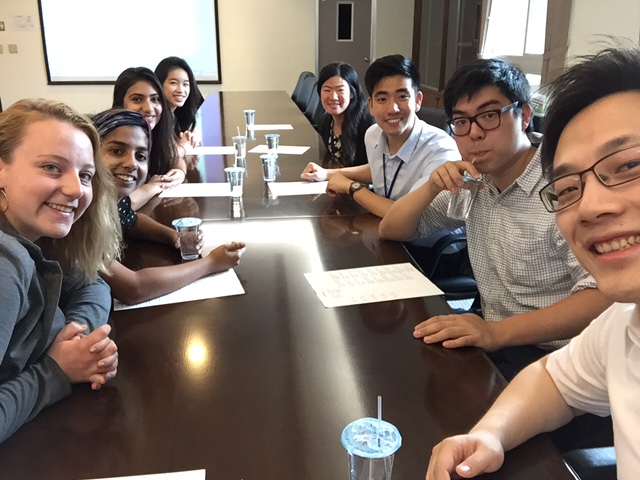Written by Peter Wang, MD 2019
The focus of the GHI project in Taiwan is to connect medical students from Taiwan, Canada, and United States to share and exchange information about each countries’ health care system and medical education program. For a two-week duration, Canadian and American pre-med and medical students were brought to many different health care settings to have dialogues and discussions with many different types of health care officials and doctors. Among the people we got a chance to meet are government health care officials, hospital directors, specialist, family doctors, and local medical students. We had many great constructive discussions and QnA sessions together that led to many fascinating exchanges.
A big focus on this international exchange is the health care system of each country. The Taiwanese health care system (NHI), is a fairly new national program that models it policies after many successful systems in world. One of the greatest strength of the NHI is that it is able to cover all medical, dental, pharmaceutical, and Chinese medicine fees, while using only ~6.9% of the Taiwan GDP (vs ~10.4% of Canada). Because of the comprehensive coverage and low fees, the general Taiwanese population are very happy with the NHI. However, the low cost does come at a price. Doctors in Taiwan are overworked, underpaid and generally not pleased with the NHI. Personal well-being, something stressed again and again in the Canadian medical system, is not something doctors in Taiwan are taught.
Other than the health care system, we learned a lot about the intricacy of medical policies in general. Taiwan does not have a gate-keeper system like Canada does, and thus, self referral is a common trend. This creates substantial costs and needless appointments. When asked about the reasons for not implementing a gate-keeper system, we got an unexpected answer in that older Taiwanese general practice doctors are not trained sufficiently in differential diagnosis to be able to practice as the front line of the health care system -as a gate-keeper system will require very competent family doctors. We also got to touch on subjects such as how hospitals were run, how the government handles public health and outbreaks, how Chinese medicine were practiced, and much much more. Probably one of the most exciting experience in this program is the opportunity to watch a live liver transplant in the OR of one of the leading liver transplantation facilities in the world.
The cultural component of this trip is also tremendous. The program organizers were terrific in making sure all participants get the most out of the trip. From field trips to the best beach in Taiwan, to the biggest night markets, to the local art and temples, every one of us got to fully experience Taiwan. Local students in the dorms of the junior college we stayed in became our little professional guides. It is simply an amazing country with some of the friendliest people to show us around. The only regret on this trip is the fact that we only got to stay for 2 weeks -it was difficult saying goodbye to all the sweet students that took us around everyday.
The treasures of this trip are the wealth of information that one would be difficult to receive anywhere else (I mean which students get to meet foreign government officials to discuss health care systems), the eye opening experience of a wonderful culture, and the friendships that we built throughout the trip.
